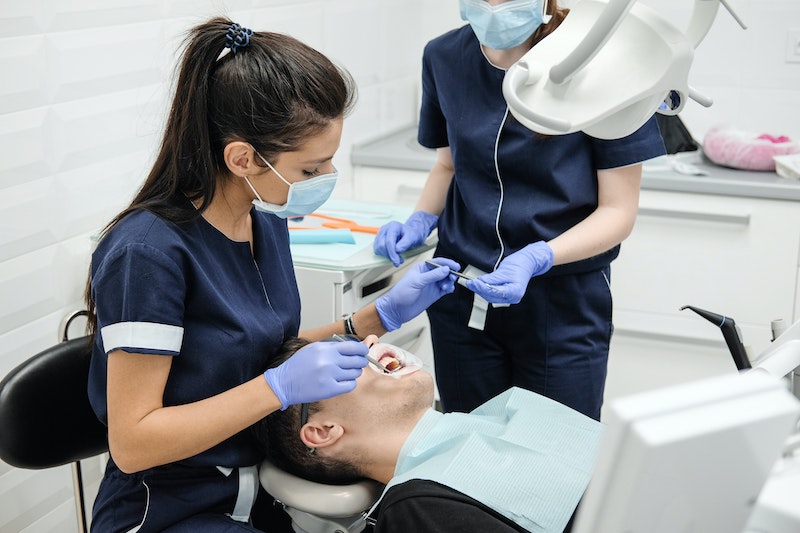Establishing good oral health habits early in a child’s life sets the stage for a lifetime of healthy teeth and gums. The importance of dental care for children cannot be overstated. Regular dental visits play a crucial role in preventing oral diseases and ensuring that any potential issues are addressed promptly. Pediatricians and dental professionals advocate for early dental visits, emphasizing their benefits not just for the teeth, but for overall health.

Image credit: Pexels-evelina-zhu
The Importance of Early Dental Visits
Starting dental visits at a young age is essential for various reasons. The American Academy of Pediatric Dentistry recommends a child’s first dental visit should occur by the age of one or within six months after the first tooth erupts. Early evaluations can help detect tooth decay and other potential issues before they become severe. Maintaining good oral hygiene habits from a young age helps instill the importance of dental care as children grow.
Finding the Right Dental Provider
Selecting a dental provider who specializes in pediatric care is pivotal. Parents should consider factors such as the dentist’s approach to children and their ability to create a welcoming environment. Searching for the best dentists in Winchester or your city ensures that children receive care in a friendly, age-appropriate atmosphere. Proper engagement and communication between the dentist, parents, and children can significantly influence the child’s attitude toward oral health.
Preventing Dental Problems
Routine dental visits help prevent common childhood dental problems, such as cavities and gum disease. Statistics show that more than 20% of children between the ages of two and five have at least one cavity. Regular check-ups allow dental professionals to clean teeth, apply fluoride treatments, and provide sealants, all contributing to reducing the risk of cavities. Preventative care is not just about cleaning; it’s about education. During these visits, dentists educate parents and children on proper brushing techniques, dietary choices, and the significance of routine oral care.
Building a Positive Relationship with the Dentist
Creating a positive experience with dental visits from an early age is crucial in helping children feel comfortable at the dentist. Fear of the dentist can stem from unfamiliar environments or negative experiences. By starting dental visits early in life, children can become accustomed to the office setting, the dental staff, and the procedures involved. This familiarity can help reduce anxiety and foster a sense of trust in dental care providers. A supportive environment, tailored to children, can transform what may be a scary situation into a comfortable one.
Monitoring Developmental Milestones
Dental visits serve not only to check teeth but also to monitor a child’s dental development. Dentists can assess the growth and alignment of teeth and jaws, ensuring that they develop properly as children grow. Issues such as spacing or misalignment can be addressed early on, potentially avoiding the need for extensive orthodontic work later. Enhanced sensitivity to a child’s specific needs during formative years contributes significantly to a lifetime of healthy smiles.
Education on Nutrition and Lifestyle Choices
Dental health is closely tied to nutrition and lifestyle choices. During early dental visits, dental professionals often discuss healthy eating habits with both parents and children. These discussions can include the impact of sugary snacks and drinks on oral health. Children learn about making informed choices about their diet and its effects on their teeth. The information provided during these visits lays the groundwork for lifelong healthy habits.
Addressing Parental Concerns
Parents often have questions and concerns about their children’s oral health. Early dental visits provide an opportunity for parents to discuss their concerns with professionals. Topics may include thumb-sucking, pacifier use, and best practices for brushing. Getting advice from experienced dentists can dispel myths, alleviate anxieties, and provide tailored guidance for each child’s unique dental health journey. This engagement empowers parents to play an active role in their child’s oral health.
Establishing Ongoing Care Routines
Routine dental check-ups create a framework for ongoing care that extends beyond simply visiting the dentist. As children grow, they develop a relationship with oral hygiene practices based on these early experiences. Regular visits align with the establishment of a proper dental care routine at home, including brushing and flossing. Following these recommendations can lead to healthier teeth and gums in the long run. Furthermore, continuous care can help spot issues that may not be obvious to parents, keeping everyone informed of the state of their child’s oral health.
Leveraging Technology in Pediatric Dentistry
Pediatric dentistry has seen significant advancements in technology that enhance dental visits for children. From laser treatments to digital X-rays, modern dental offices leverage these tools to provide a more efficient and less invasive experience for young patients. Understanding the latest advancements in dental care can reassure parents about the safety and effectiveness of treatments available. The integration of technology in pediatric dentistry aids in the early detection and treatment of potential issues, making visits not only educational but also encouraging.
Starting dental visits as early as possible reaps long-term benefits for children’s dental health. These appointments serve a vital role in preventing dental issues, building positive experiences, and ensuring proper development. By fostering good habits and choosing the right dental provider, parents can significantly impact their child’s oral well-being for years to come.



